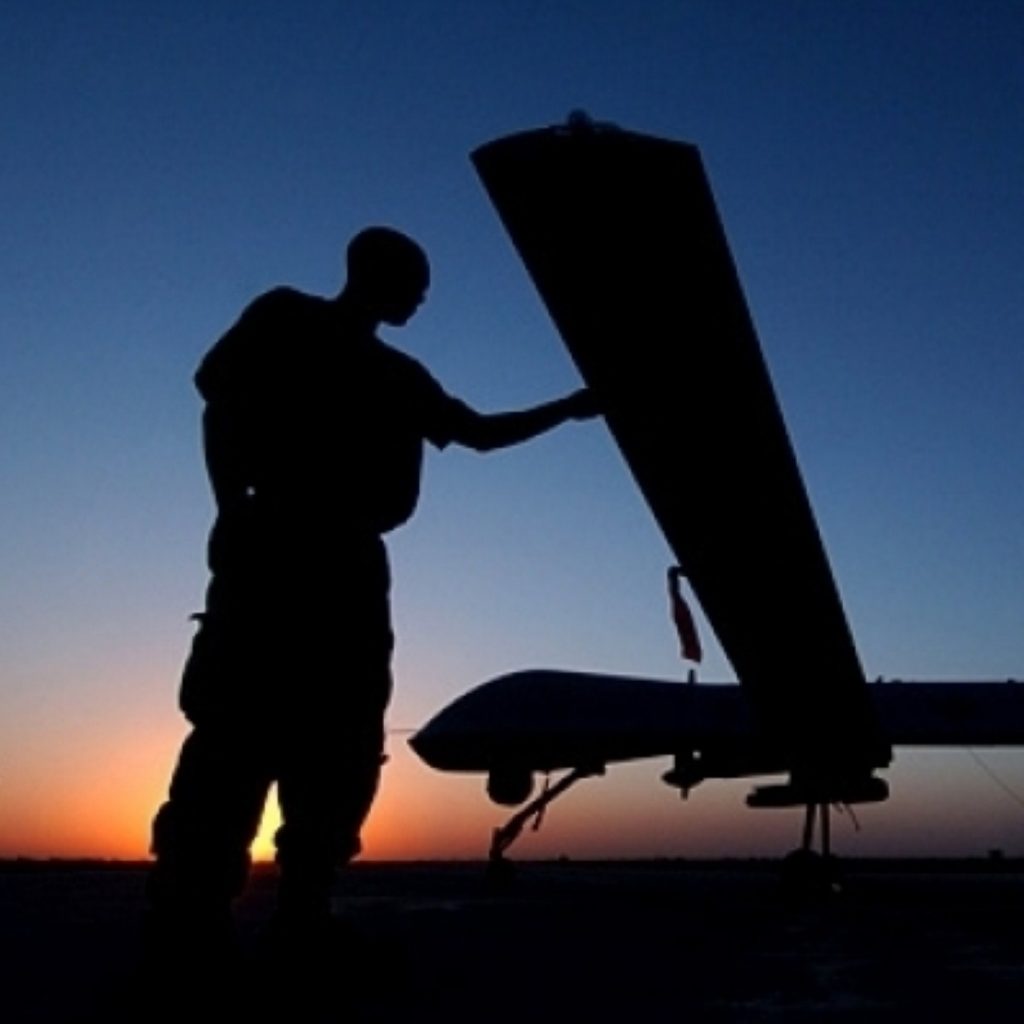Drones, robots and microchips: The future of warfare revealed
By Jo-Anna K. Burnett Follow @jo_annak
Technology is making war worse rather than better, an international relations professor has said.
Christopher Coker of the London School of Economics told a Palace of Westminster audience that post-human technology, drones and the development of the cyberworld are all changing the landscape for war.
He said post-human conflict would see people living in a symbiotic relationship and evolving with technology, which could include implanted microchips to monitor brain waves to functional prostheses like arms and hands.


Countries will also use drones or robots in conflicts much more. "Robots will be the future of war," Coker said, citing countries like South Korea and Japan that frequently uses robots in the medical field because they do not respond to emotions and have no prejudices.
Warfare in cyberspace involves the capability of not only nations and countries but also individuals who can start wars and plan enemy attacks without ever leaving their homes.
Sometimes children as young as 11 years old are recruited as cyber attackers, since they may possess sophisticated technology skills, and are unlikely to be prosecuted by authorities, Coker said.
"They are killing people," he added, noting that these children spend eight hours online. "They can't talk about it to their families."
But other experts disagree over the data on cyber warfare.
The main problem in cyber warfare "is getting them to stop when you want them to stop" said Peter Sommer, formerly of the Information Systems Integrity Group at the London School of Economics and a cybersecurity consultant.
"They're not really weapons, because if you release them they're not really attacking you."
Sommer noted that a cyber-attack on the UK and US government is unlikely, because everyone would be affected. He suggested security is as interlinked as a power grid.
The specialist also disagrees with reports of a US government cyber-attack from China, and noted the lack of external evidence. "There's often a lot of exaggerating there," he said.
An online breach of the New York Times, by contrast, "makes a lot of sense." In October, the New York Times published an in-depth investigation into China's prime minister Wen Jiabao and suggested nepotism in the accumulation of his family's wealth through business ventures.
"What's true is that we can no longer separate our cyberselves from what we do," he added.
"Cyber is everywhere and takes different forms. Espionage is as old as mankind."
The event, organised by the Henry Jackson Society, was a part of Coker's promotional book tour for Warrior Geeks: How 21st Century Technology is Changing the Way We Fight And Think About War.
Last week, the US department of defense accused China of breaking into computer systems worldwide "including those owned by the US government".
Its annual report to Congress on the Chinese military stated: "These intrusions were focused on exfiltrating information. China is using its computer network exploitation capability to support intelligence collection against the US.
"The information targeted could potentially be used to benefit China’s defense industry… and related military capabilities that could be exploited during a crisis."

